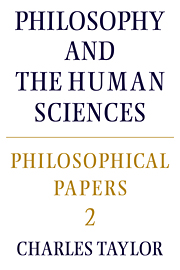Book contents
6 - Foucault on freedom and truth
Published online by Cambridge University Press: 05 June 2012
Summary
Foucault disconcerts. In a number of ways, perhaps. But the way I want to examine is this: certain of Foucault's most interesting historical analyses, while they are highly original, seem to lie along already familiar lines of critical thought. That is, they seem to offer an insight into what has happened, and into what we have become, which at the same time offers a critique, and hence some notion of a good unrealized or repressed in history, which we therefore understand better how to rescue.
But Foucault himself repudiates this suggestion. He dashes the hope, if we had one, that there is some good we can affirm, as a result of the understanding these analyses give us. And by the same token, he seems to raise a question whether there is such a thing as a way out. This is rather paradoxical, because Foucault's analyses seem to bring evils to light; and yet he wants to distance himself from the suggestion which would seem inescapably to follow, that the negation or overcoming of these evils promotes a good.
More specifically, Foucault's analyses, as we shall see in greater detail, turn a great deal on power/domination, and on disguise/illusion. He lays bare a modern system of power, which is both more all-penetrating and much more insidious than previous forms. Its strength lies partly in the fact that it is not seen as power, but as science, or fulfilment, even ‘liberation’. Foucault's work is thus partly an unmasking.
- Type
- Chapter
- Information
- Philosophical Papers , pp. 152 - 184Publisher: Cambridge University PressPrint publication year: 1985
- 25
- Cited by



